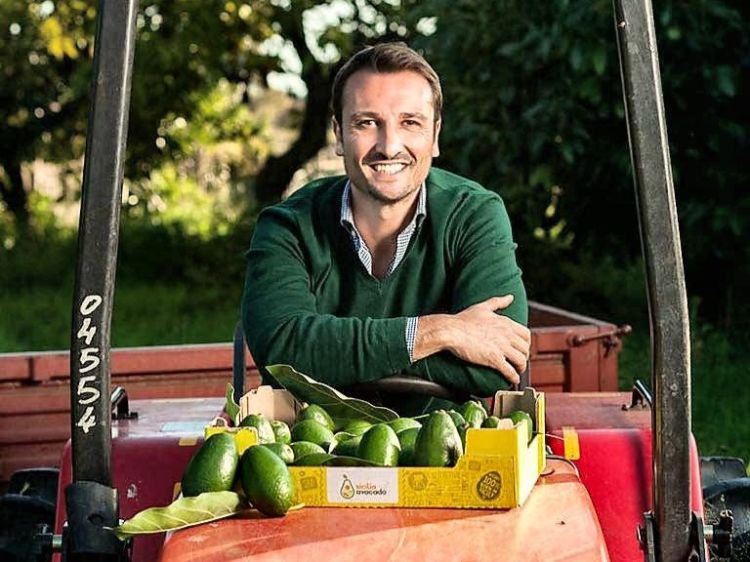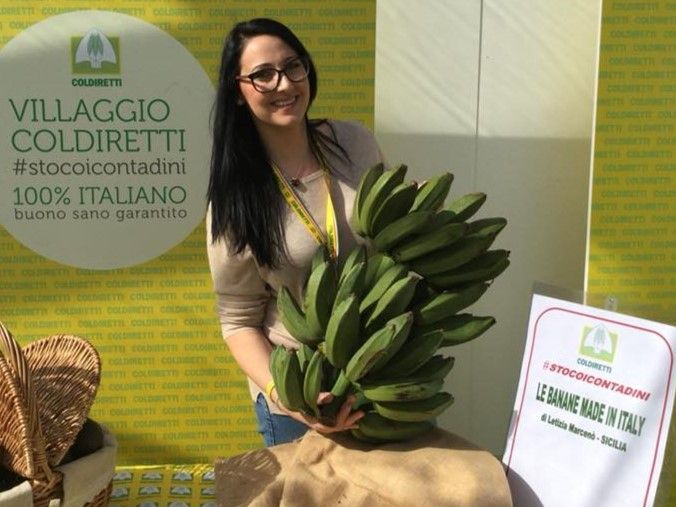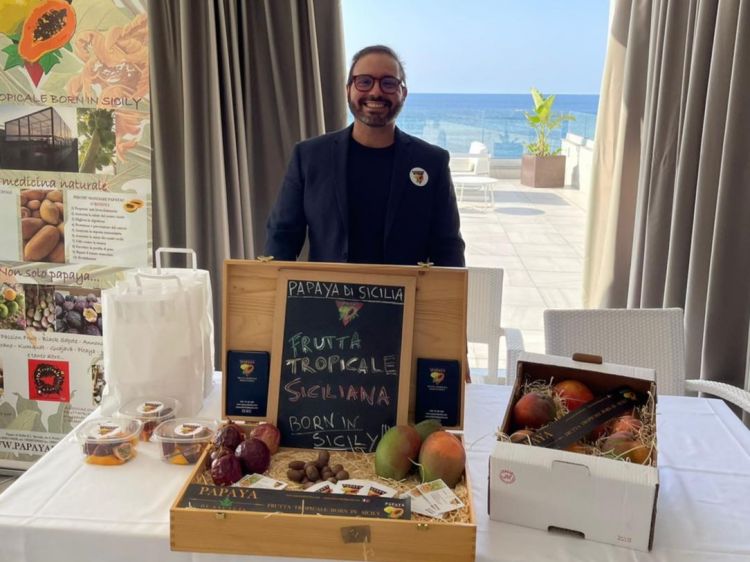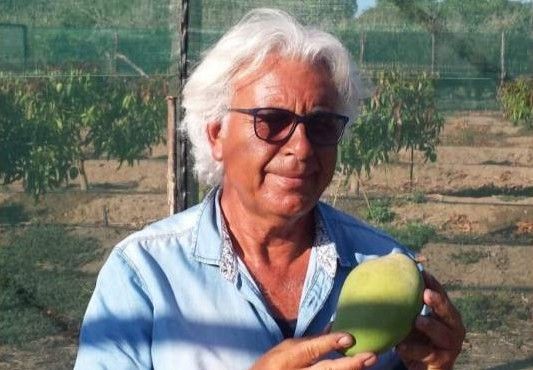In 2018 the Nobel prize for economics went to US economist William Nordhaus, for his study on the relationship between economic growth and political and economic choices. Adapting to the new territorial needs is a prerogative of social beings as producers of culture and, among producers of culture, we should include cooks, if we consider that food represents the cultural identity of a people and that in cooking we can find the unique features of a territory.
Chef Carlo Cracco and his right arm Luca Sacchi, the author of the emblem dish of Identità Milano 2023, whose theme will be “Ladies and gentlemen, the revolution is served” (read here) are well aware of this: Avocado, kiwi and coriander is a testimony of a changing world and of human adaptation, an edible manifesto of a necessary revolution due to the increase in temperature and the consequent climate change (read here for the explanation of the dish). A preparation that breaks the rules and projects itself into the future, opening new possibilities both from a culinary point of view and a conceptual one, as it is made of exotic ingredients strictly produced in Italy.
An exotism of our own? According to the
Institute of Atmosphere and Climate Sciences of the
Consiglio nazionale delle ricerche (
Isac-Cnr), the tendency to temperature increase is clear in Italy, where the list of the hottest years of the last two centuries is concentrated in the last decade and includes, in order, 2022, 2018, 2015, 2014, 2019 and 2020. The consequence is the result of an analysis of
Coldiretti published early in December on the occasion of the opening of the
Villaggio Coldiretti in Palermo: in the space of 5 years the farming in Italy of bananas, avocado, mango and the like has tripled, reaching 1200 hectares in Puglia, Calabria and Sicily, while kiwi abounds in Lazio and Emilia Romagna, olive trees spread in Valtellina and grapes in Valle d’Aosta.
For sure, the trend of made in Italy tropical fruits is destined to change consumption drastically in the coming years, but also the production choices of farms in the first place. After all, from a curiosity limited to a few hectares, the production of tropical fruits has become a real market phenomenon: a Coldiretti/Ixè research in 2022 revealed that as many as seven Italians out of ten (70%) look for mango, avocado, bananas cultivated in Italy. A trend motivated by the greater freshness but also by a preoccupation on the safety of imported produce.
In Puglia tropical fruits are now established, pushed by the effects of drought with a significant increase in the farming of avocado, mango and goji berries together with chokeberries, bananas and lime. In Castellaneta (Taranto), also according to
Coldiretti, there are 32K plants of avocado, in Salento the estimate is 100K avocado, 8K mango and as many lime trees, while bananas are timidly finding their place. In Calabria, the farming of mango, avocado and passion fruit are joining Thai aubergines, macadamia and even sugar cane. Cherimoya, another typical fruit from Latin America is now widespread on our coasts, so much so it is used to make jam.
Sicily, however, from the above-mentioned research, is the one that stands out in terms of quantity and quality of the farming of avocado and mango of different varieties in the countryside of Messina, Etna and Acireale, but also passion fruit, black zapote, sapodilla and litchi. All this thanks to the work and commitment of young farmers who have chosen this type of agriculture, often recovering and giving new life to plots that had been abandoned because of the climate change and previously used to produce oranges and lemons.
Avocado farms spread from the slopes of Etna to the Ionian sea, near Giarre. Between the volcano and the coast, there is the ideal microclimate that stimulates an excellent production: here the volcanic soil is strong, water-permeable, and rich in natural elements. This plus the pure water extracted from the soil gives the fruit some special and precious features, a sweet and delicate flavour, with a buttery and creamy pulp.

Sicilia Avocado is a group of 39 small farms established in 2013 in Giarre (Catania) by young Sicilian entrepreneur Andrea Passanisi, in the photo. Having soon become a leader in the industry, the group distributes its fruits all over Italy and in Europe, and counts on a portfolio of professional and individual clients, and groups of purchase. The farms spread from the slopes of Etna to the Ionian sea

In Palermo Cooperativa Valle dell’Oreto owned by the Marcenò family produces three varieties of bananas since 2012: Musa capriciosa, Musa paradisiaca and the classic Cavendish. With 4000 plants, the farm is the largest in Italy to grow bananas outside the cellar. In the photo Letizia Marcenò shows some fruits
And then: next to the Sicilian volcano, where the mild climate and the suitable soil allows it, finger lime has found its natural habitat.
On the north coast of Sicily, in a strip of land between the Nebrodi mountains and in front of the Aeolian Islands, they grow mangos from late in July to late in November.
In the province of Palermo, since 2014 a farm has been producing and distributing Sicilian papaya in an ethical and environmentally friendly way: respecting the environment and the health of consumers, they only use natural products like water, soil and manure.

In Ficarazzi, a small village near Palermo, in 2013 Luigi Speciale founded Papaya di Sicilia, a brand dedicated to a niche market of individuals, restaurants and selected retailers. The company can count on around 2000 square metres of green houses, between Palermo and Messina, where they grow two varieties of papaya, simil-formosa and simil-solo sunrise, producing around 5 tons each year

PapaMango is a brand of Bianco Rosalia in Sant’Agata di Militello (Messina). Here, in the heart of the Nebrodi mountains, overlooking the Aeolian islands, since 2012 Vincenzo Amata has planted 2300 plants of mango of different varieties: Kensington-Pride, Kent, Keitt, Sensation, Glenn, Maya e Irwin
Not far from the centre of Palermo, since 2012 they have cultivated outside the greenhouses 4000 plants of banana of two types:
Musa capriciosa and
Musa paradisiaca, the former slightly thicker and larger than the latter; near Palermo, since 2012 they have been producing in green houses organic exotic fruits like papaya, mango, bananas, mini bananas, plantain, maracuja, sugar cane, lime, pineapple, carambola, zapote, pitanga, litchi, guava, pitaya, tamarind, black sapote and cherimoya muricata. Also in the countryside near Palermo they have been experimenting the farming of coffee for a few years now. Plus the University of Palermo is working on a project to “exploit the tropicalization of the Mediterranean area”, supporting farming in the western part of the island, of tropical fruits like papaya and bananas.
«It’s not the strongest or most intelligent species that survives, but then one that best adapts to change». These words, mistakenly attributed to Charles Darwin, in fact were spoken in 1963 by Management professor Leon C. Megginson to describe his interpretation of Darwin’s thoughts, and seems almost banal but in fact they represent the only effective incipit were we to tell a child the relationship between the world and its inhabitants in the complex process of evolution. Adapting to change is thus crucial for the survival of flora and fauna, cultures and sciences, territories and people and of cooking, the eighth of the arts, a mirror of habits and society. Tradition is an innovation that, over the centuries, has been radicalised. Every evolution starts from a spark, which can generate a fire. Then luckily come revolutions to solve extreme situations.
READ HERE THE PROGRAMME OF IDENTITÀ MILANO 2023
REGISTER HERE IN IDENTITÀ MILANO 2023
Translated into English by Slawka G. Scarso